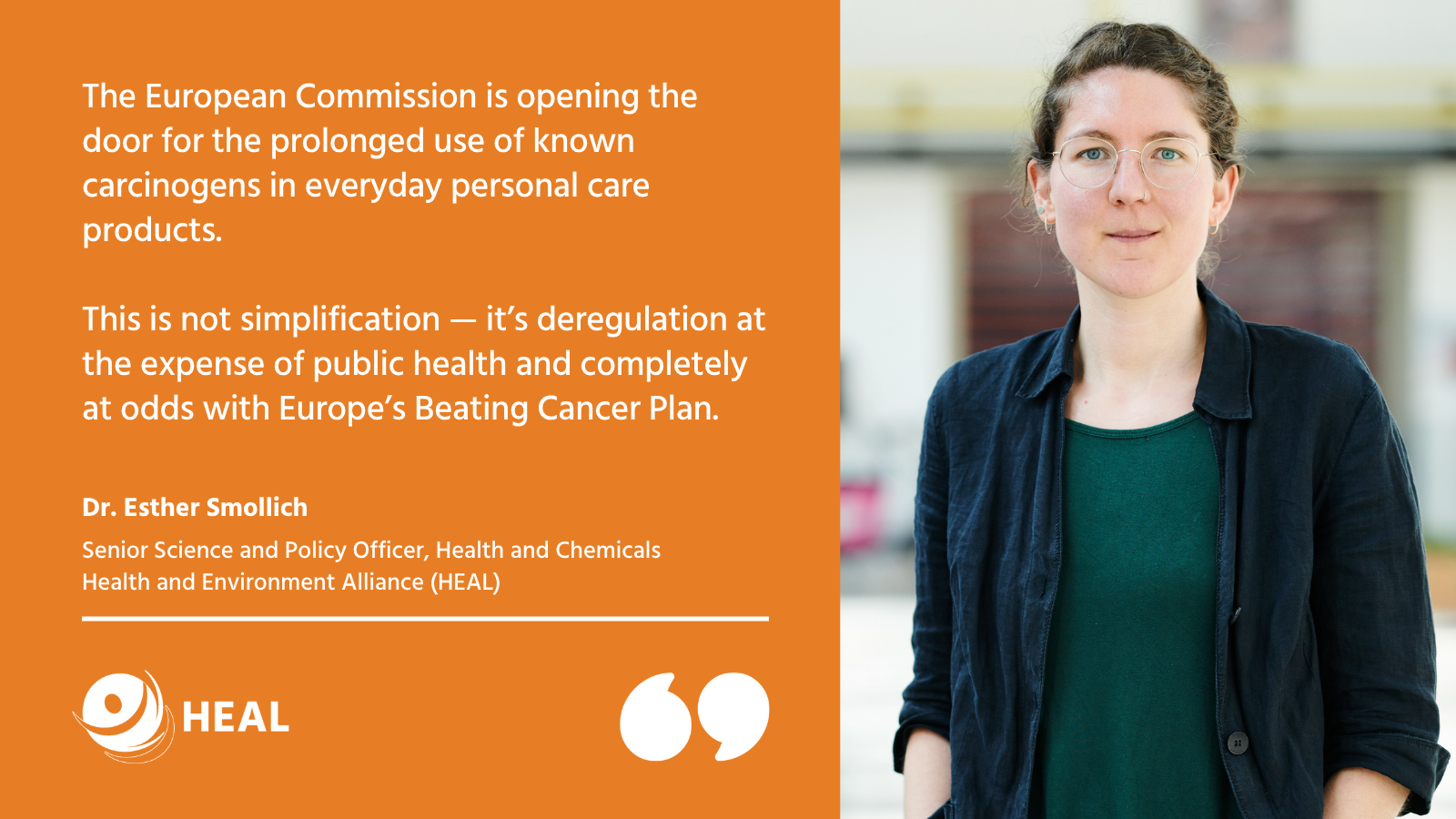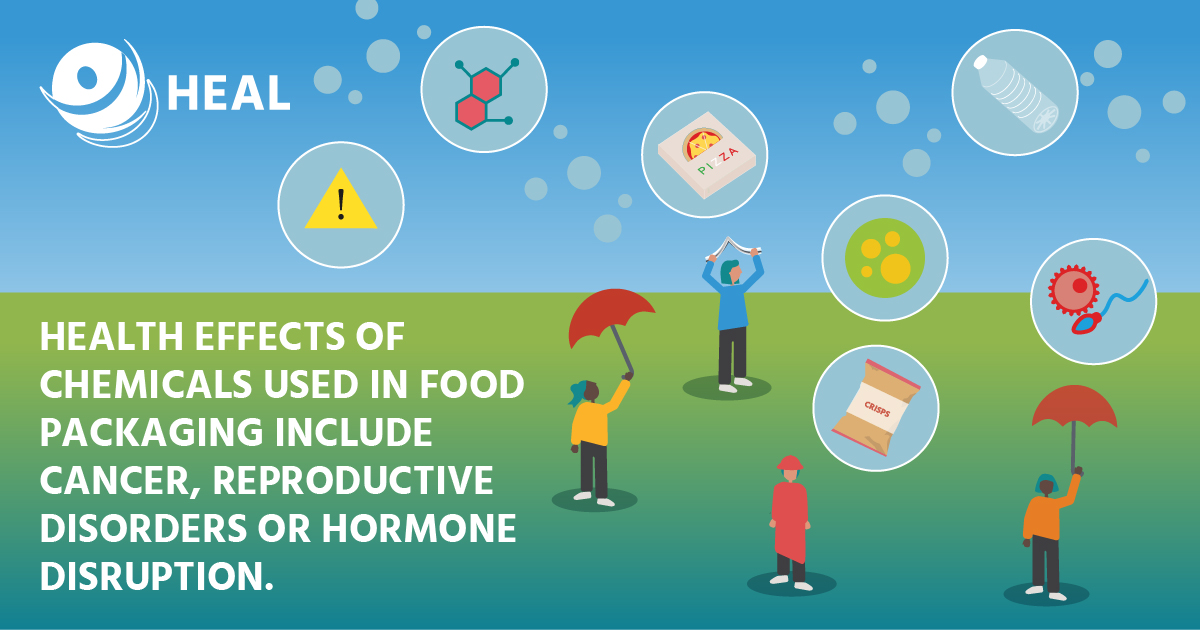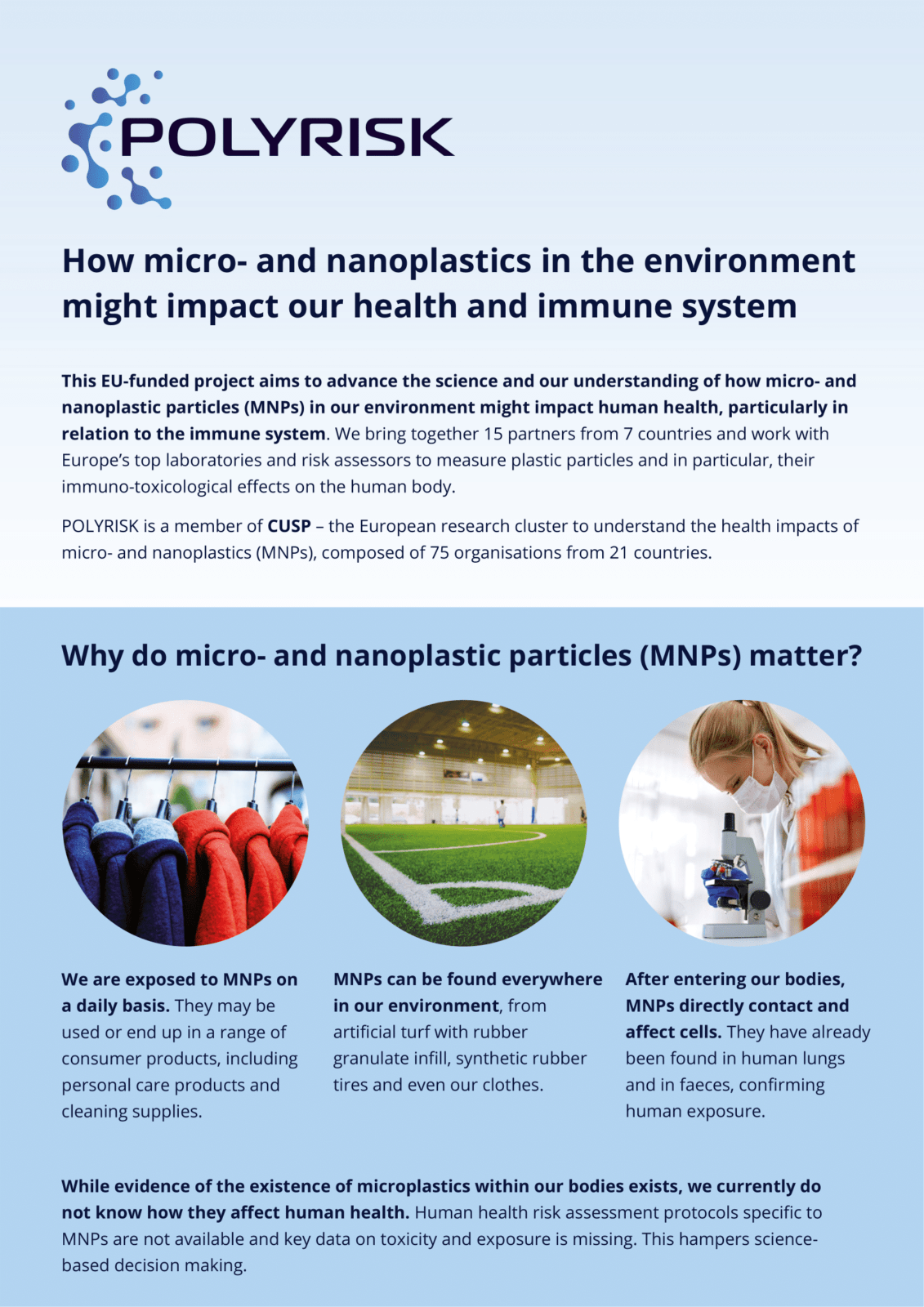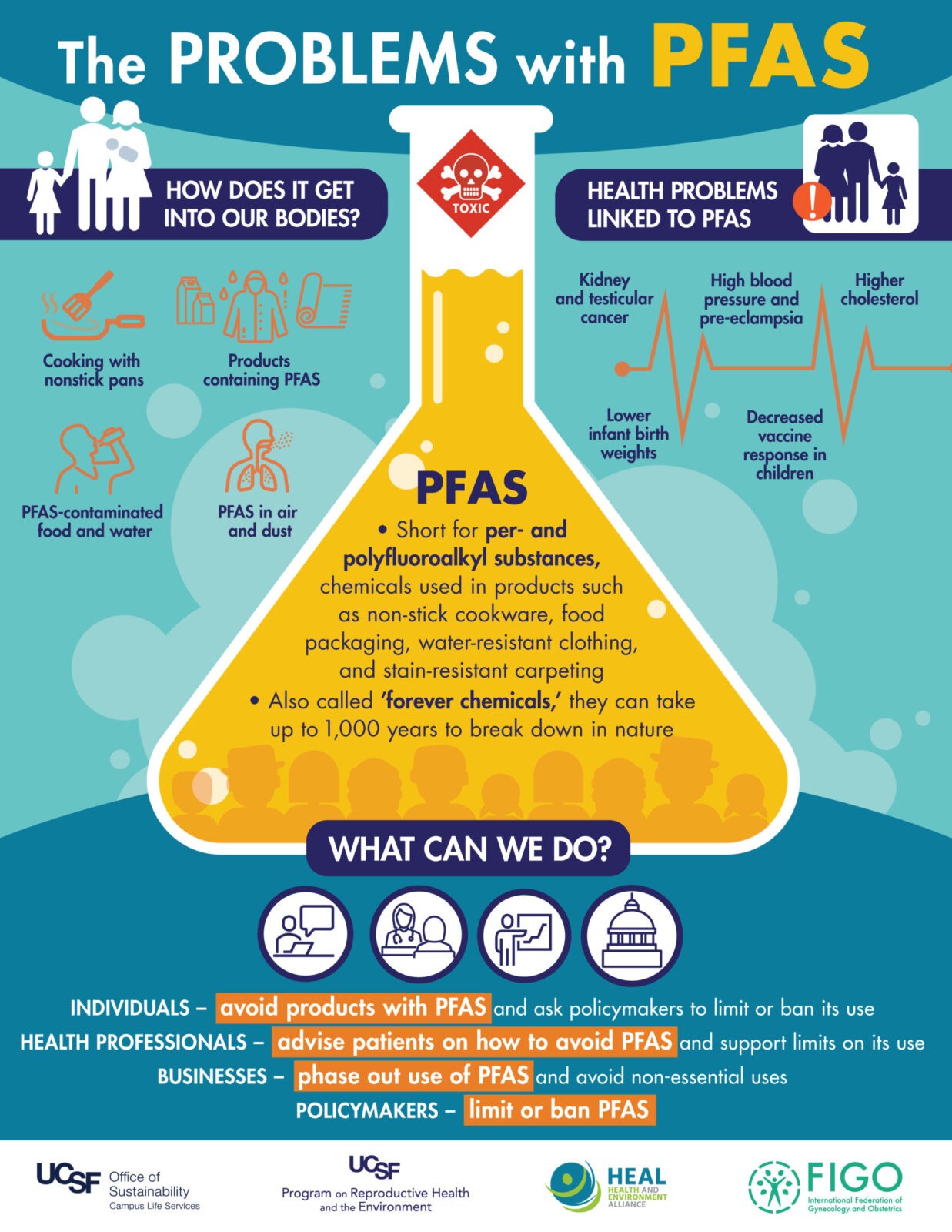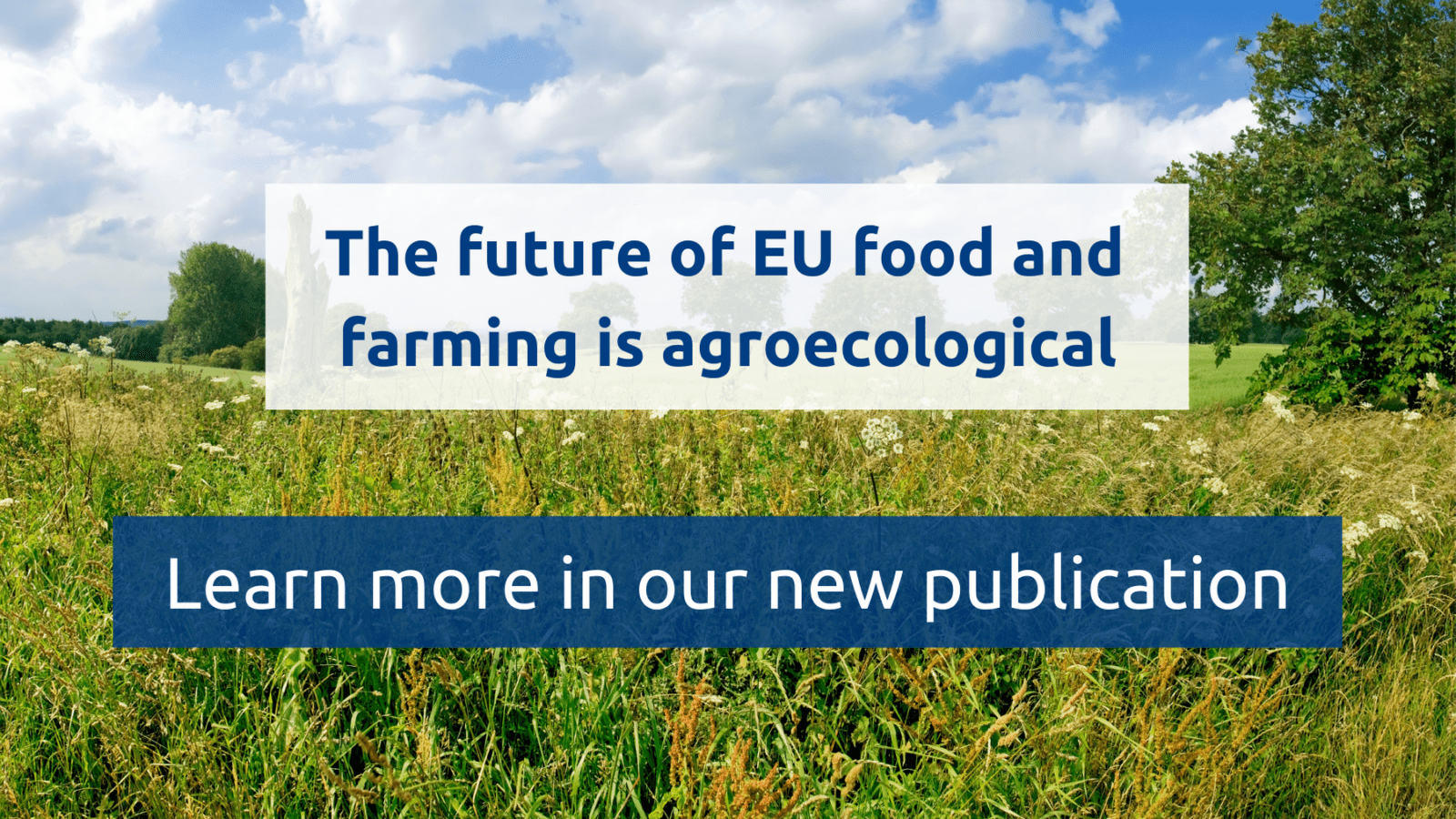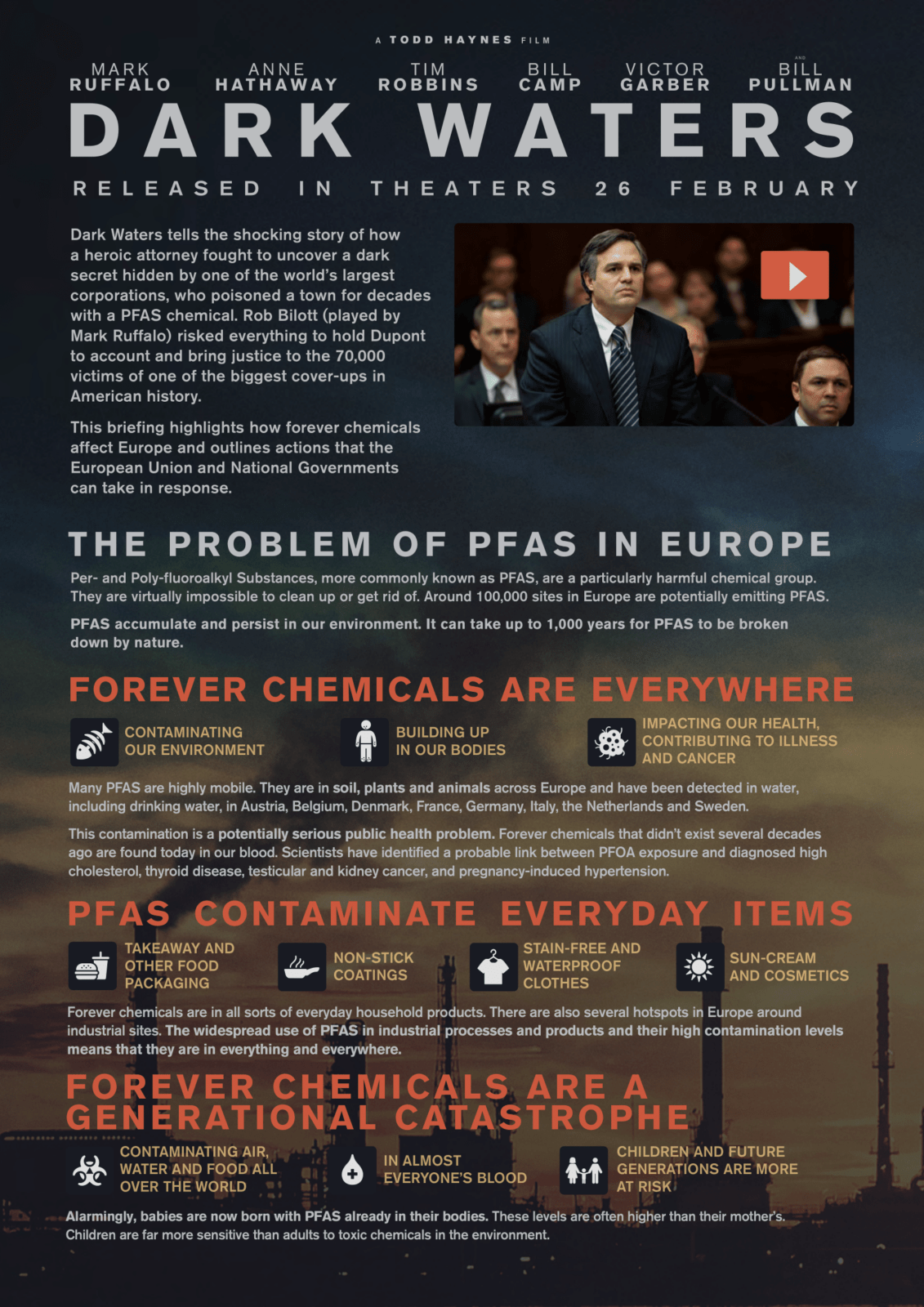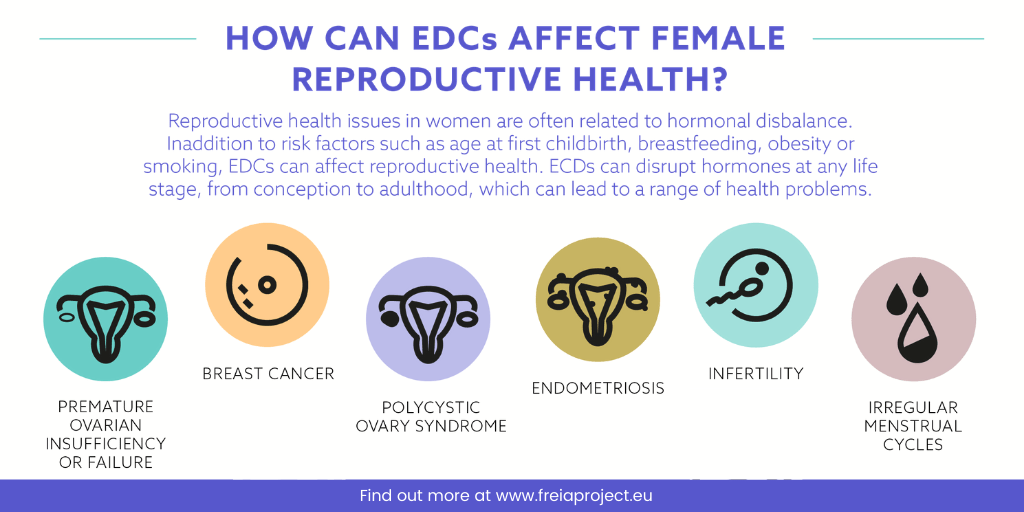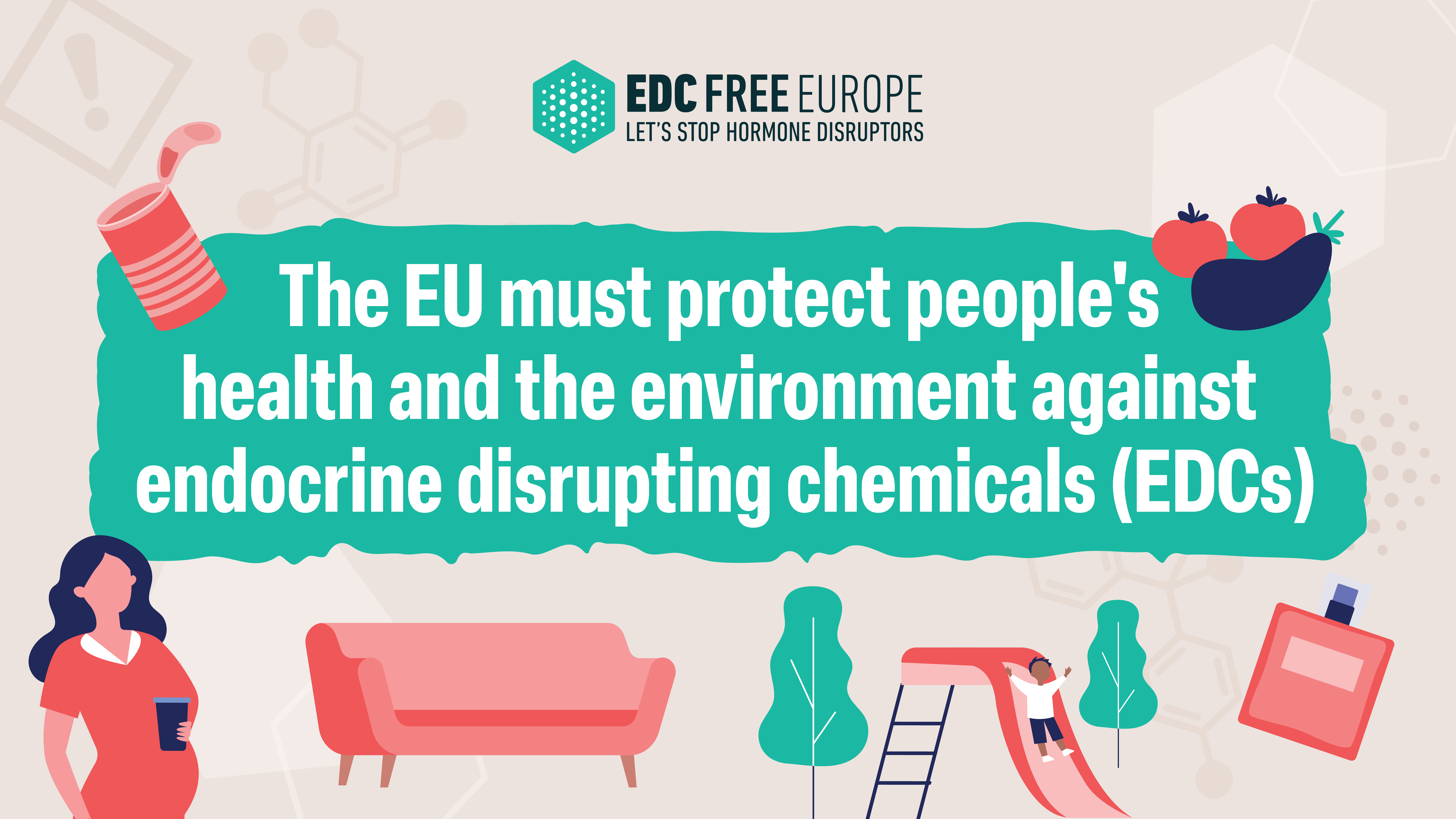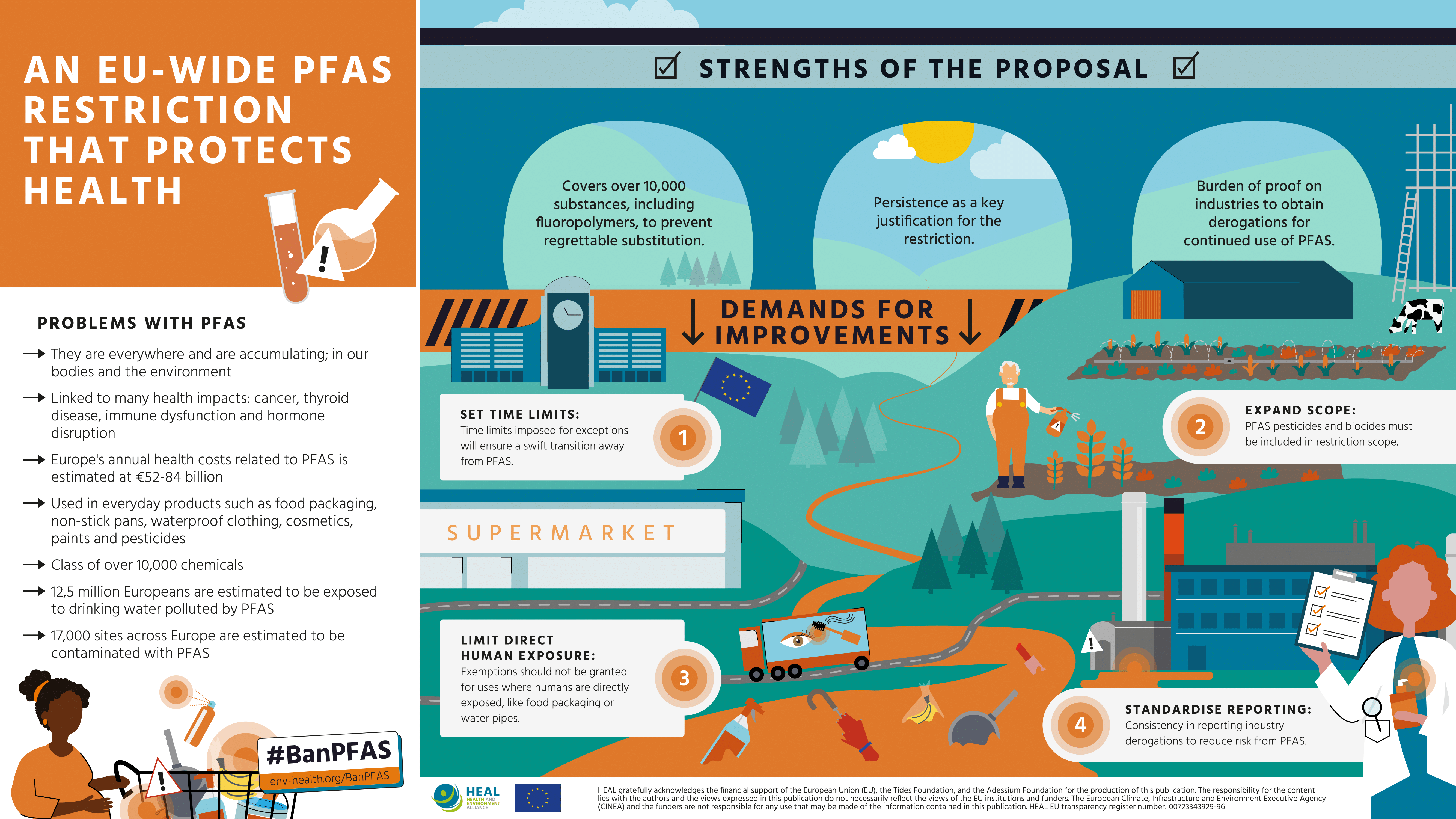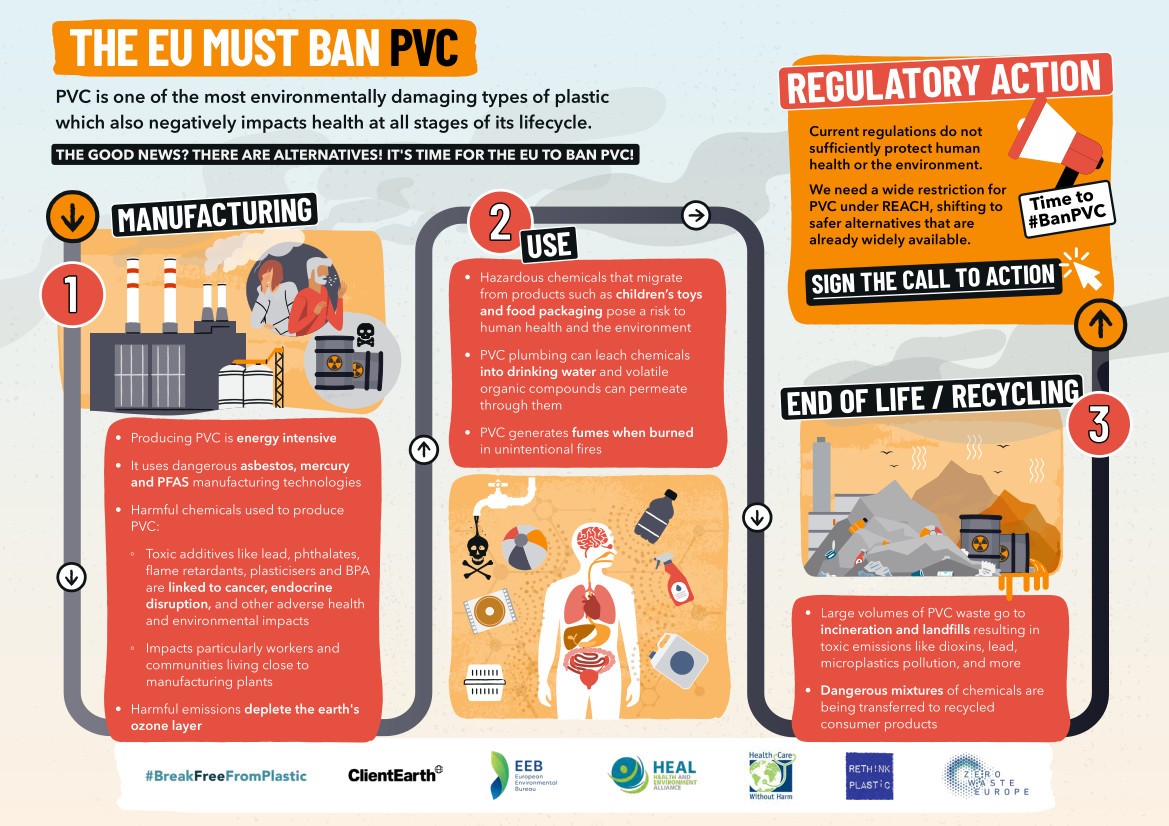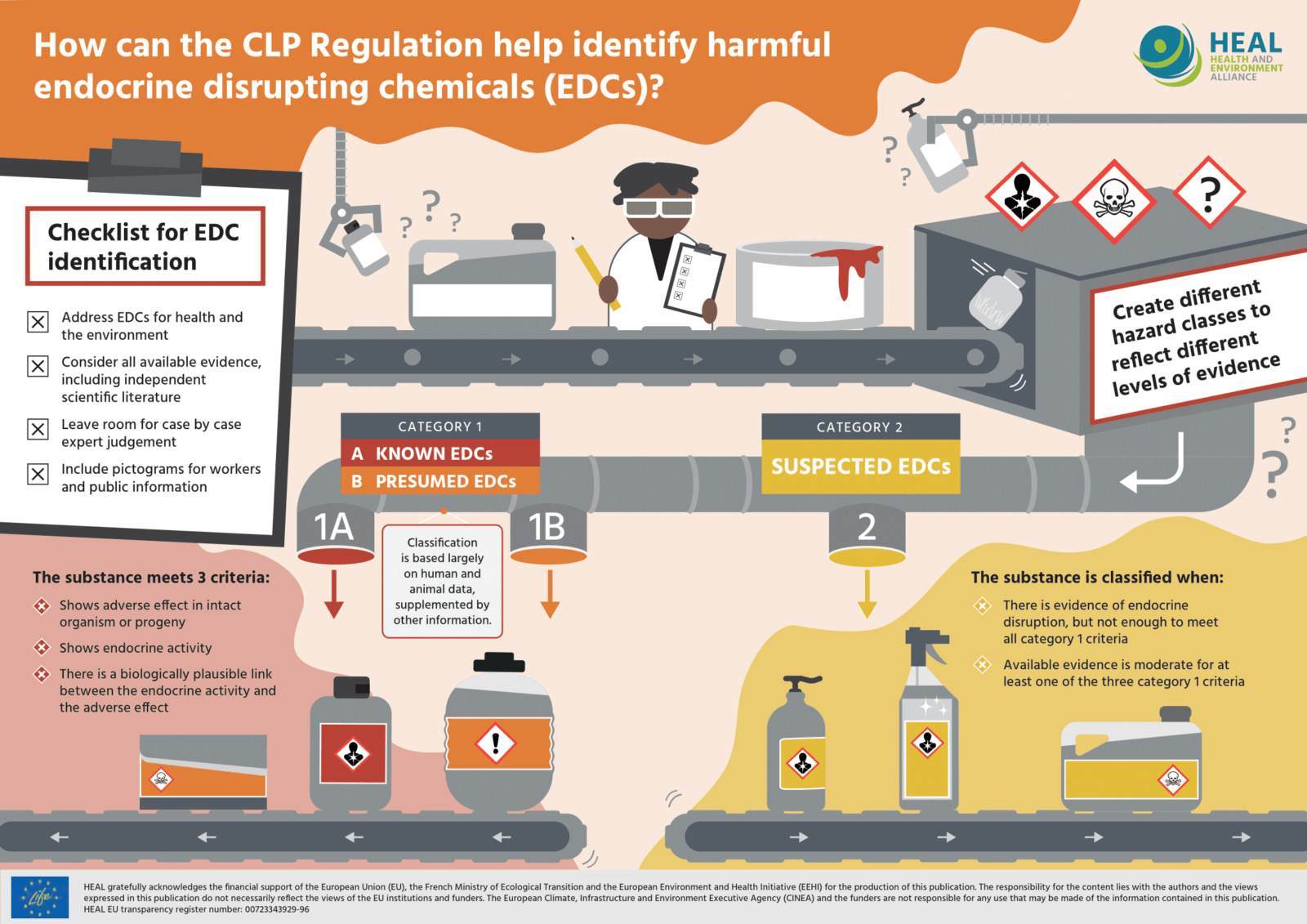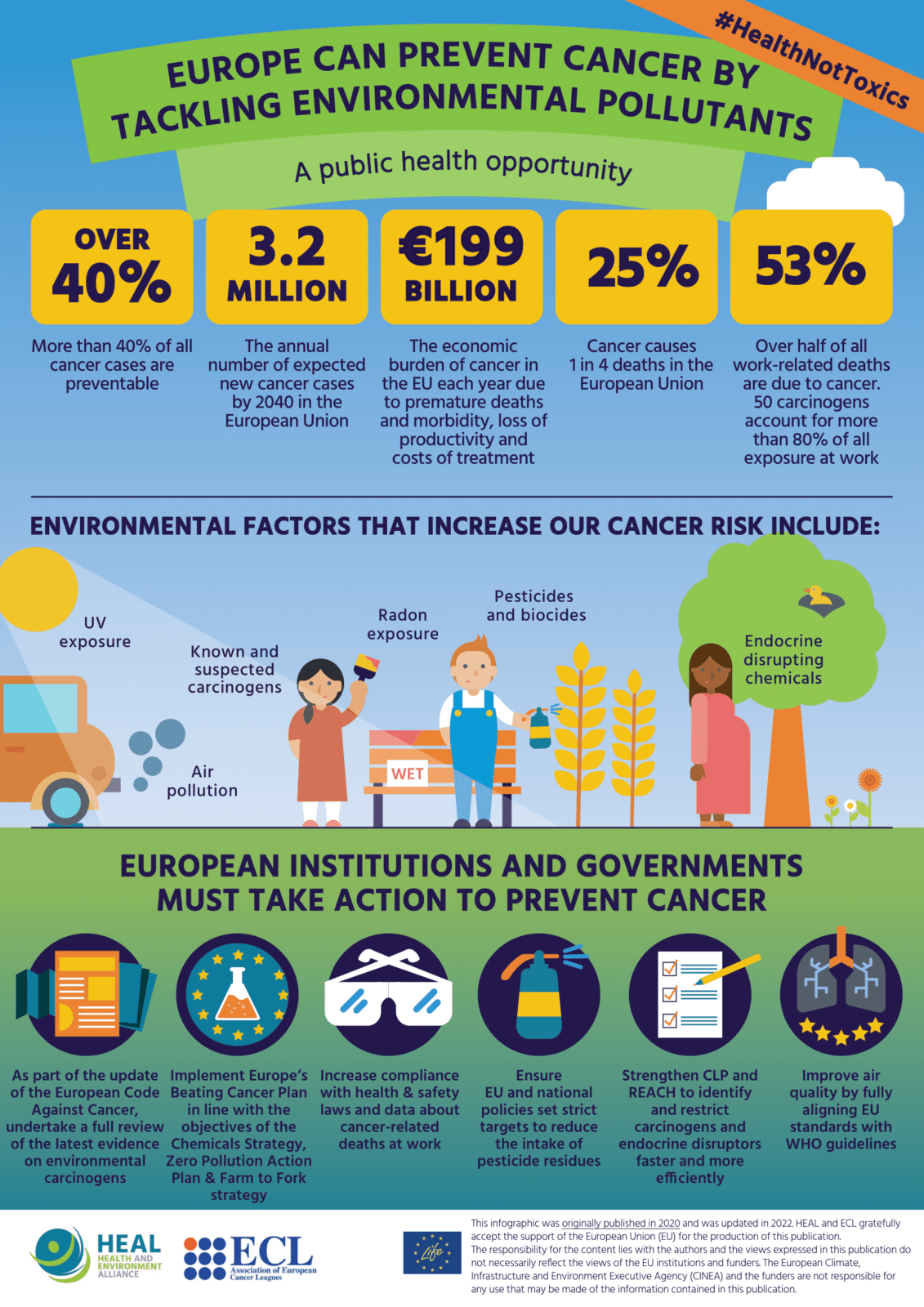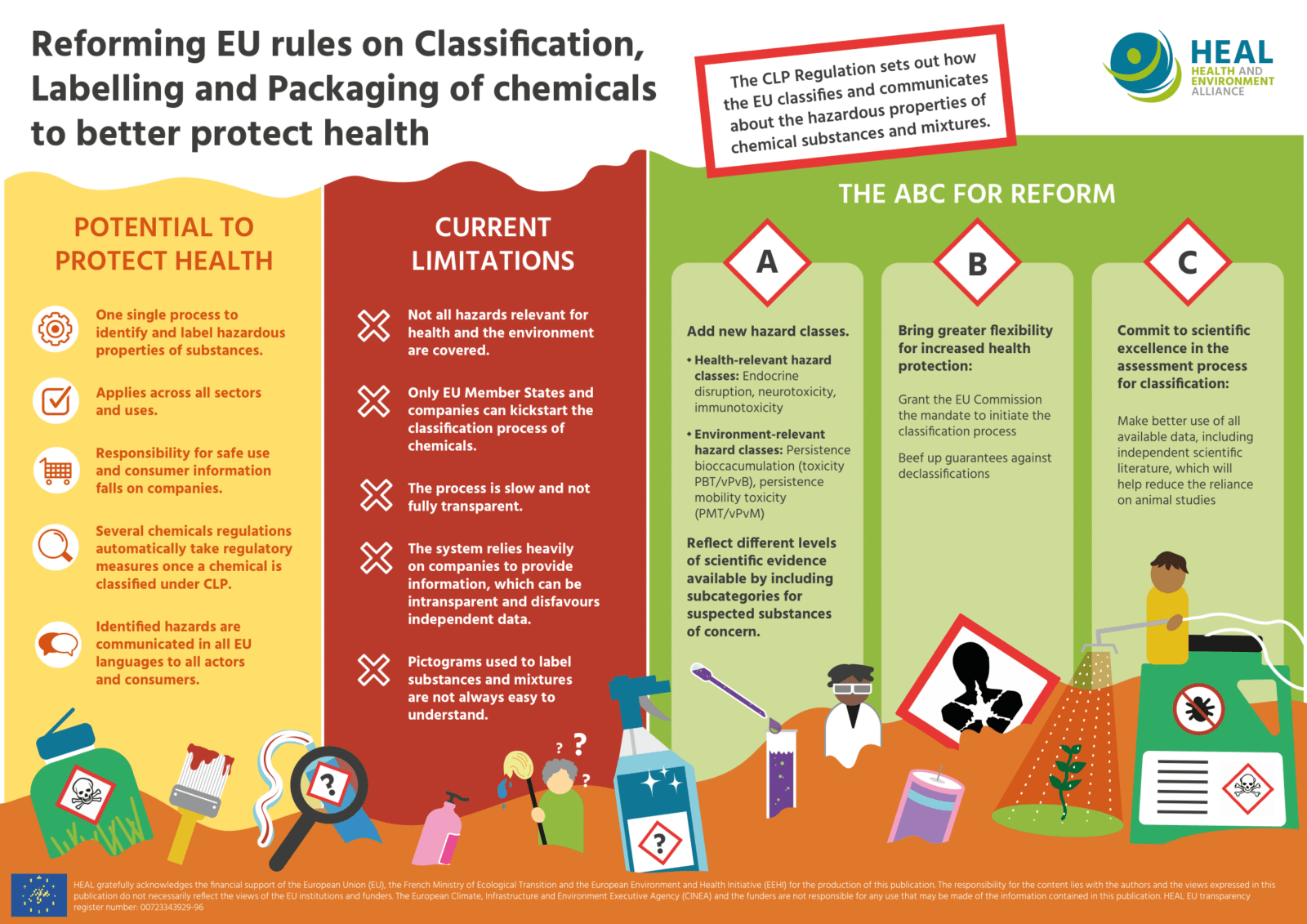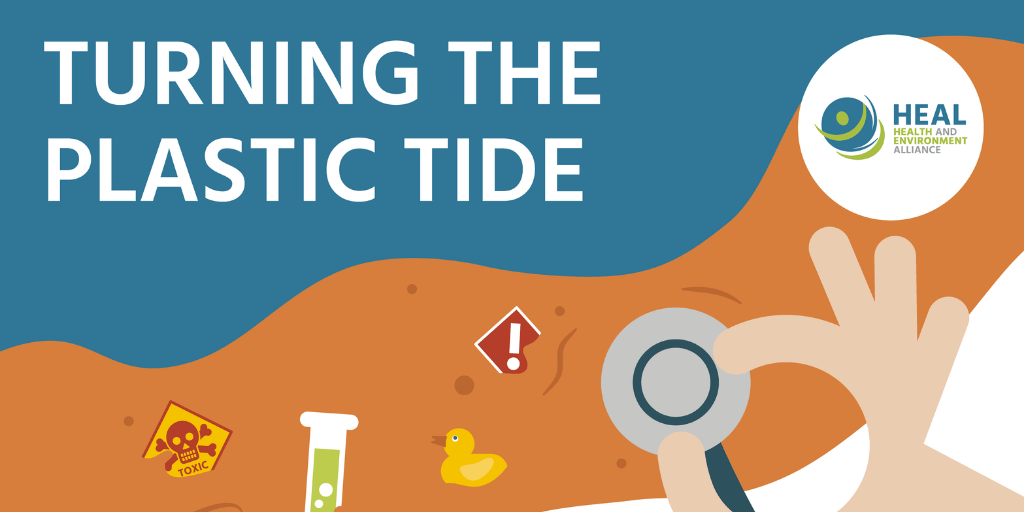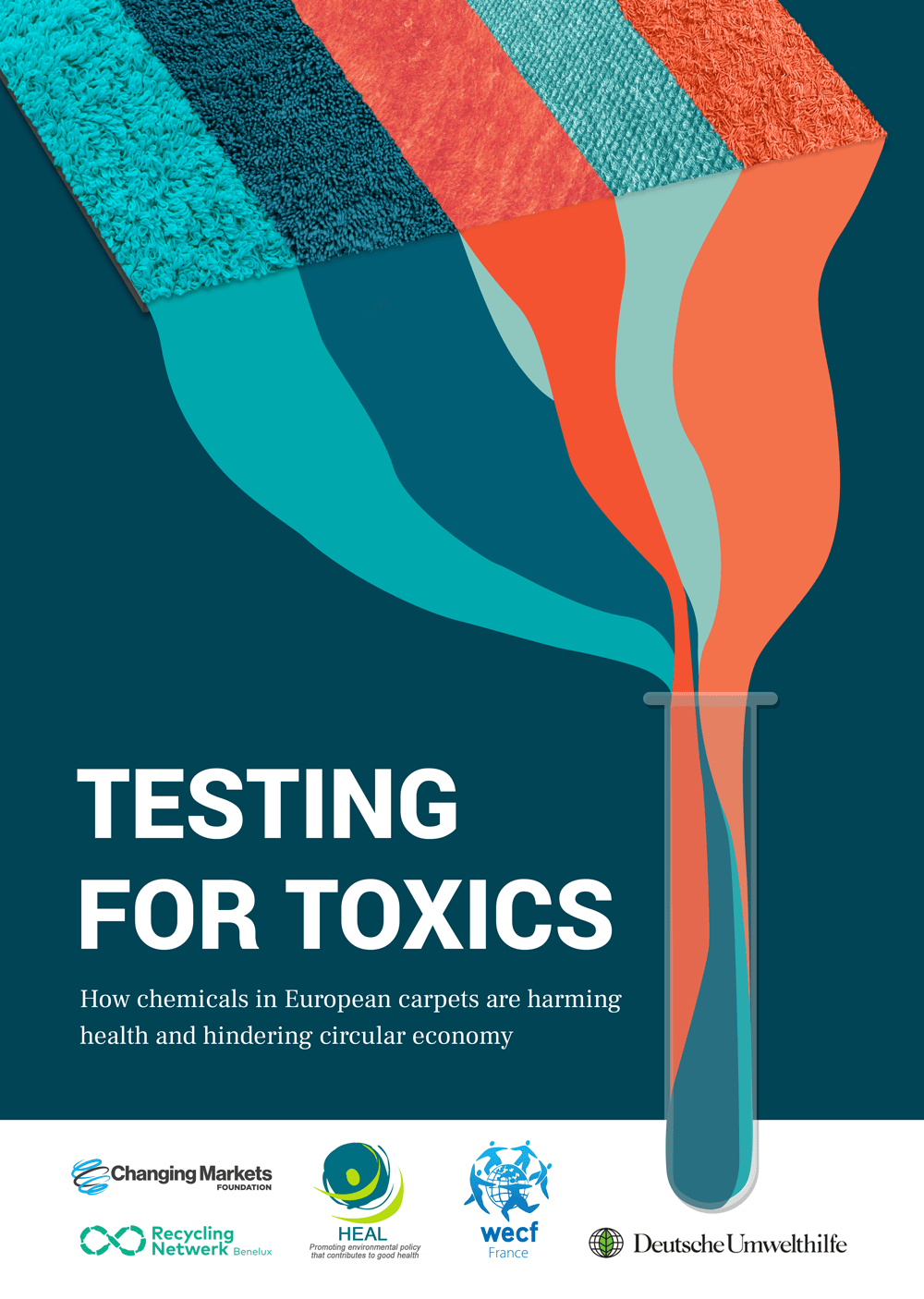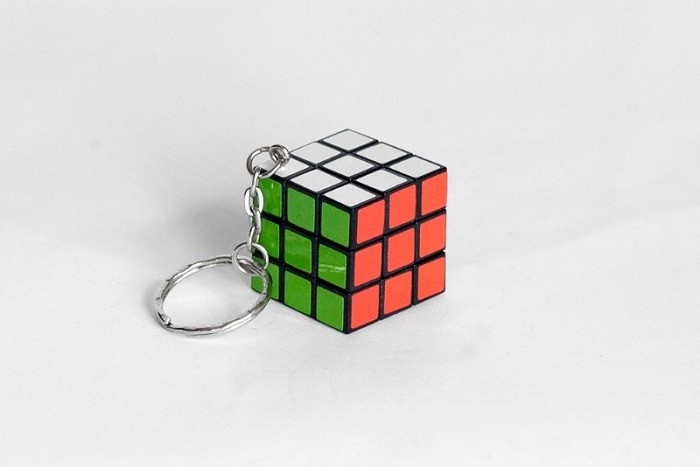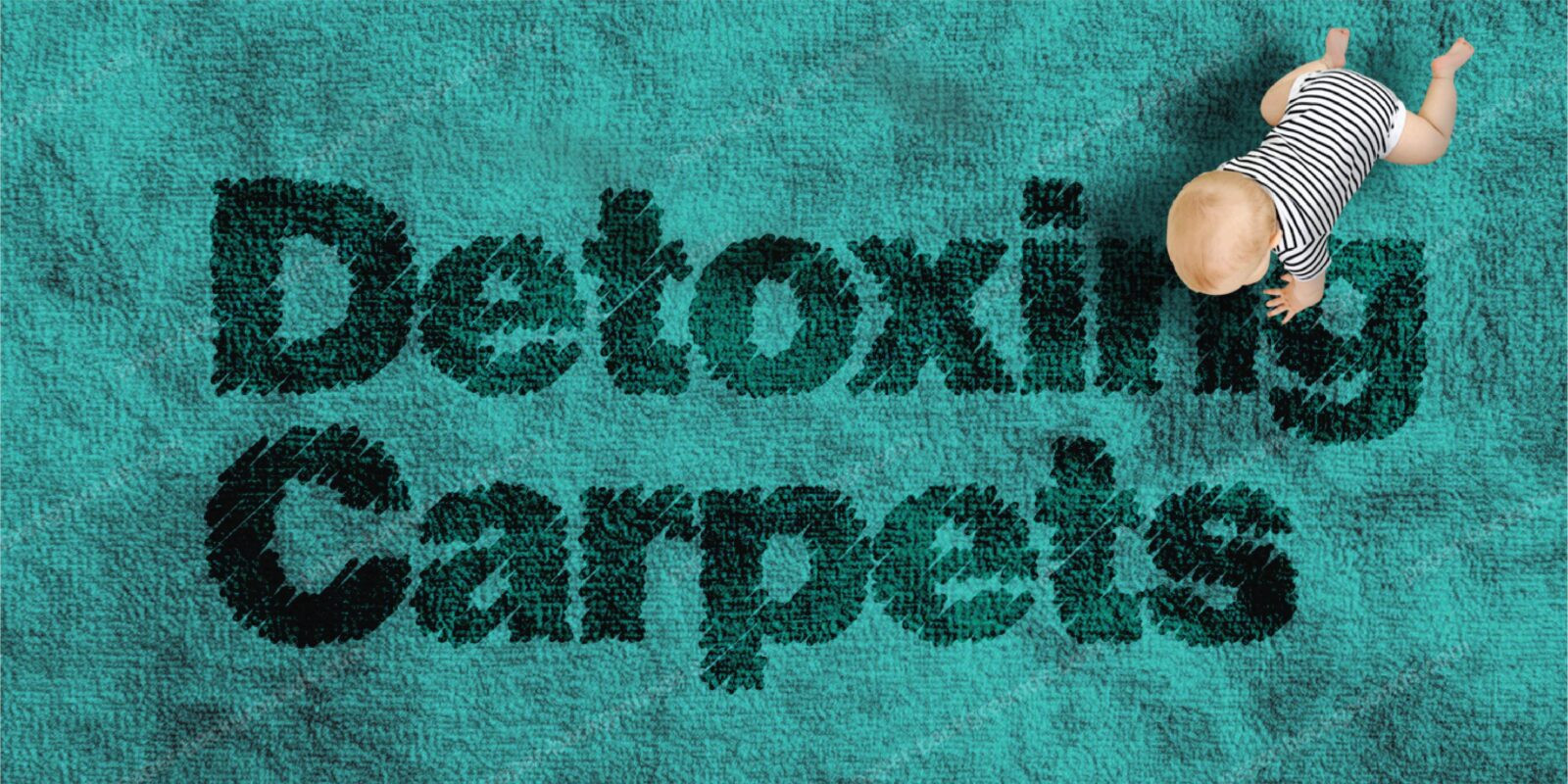We are exposed to chemicals everywhere in our daily lives. This exposure has been associated with numerous health impacts, such as cancer, weakening of the immune system and normal functioning of organs, disruption of the hormonal system and the reproductive system, birth defects and negative impacts on the mental, intellectual and physical development of children.
HEAL works with partners and decision-makers to minimise and ultimately end human exposure to hazardous and health-harming chemicals in Europe, and towards protective laws and regulations for a non-toxic environment.
Press release – From cosmetics to ‘forever chemicals’: the EU’s deregulation drive puts people’s health at risk
Today’s publication of the European Commission’s chemicals omnibus confirms serious concerns: if pushed through the proposal will significantly weaken protections in the Cosmetic Products Regulation, allowing the prolonged use of carcinogens and other harmful chemicals in personal care products.
Press release – 250 scientists call on the European Commission to address people’s exposure to chemical mixtures
HEAL welcomes the call from 250 scientists urging the European Commission to follow scientific recommendations and include provisions to account for the effects of chemical mixtures to better protect health in the upcoming revision of REACH, the EU’s regulation for chemicals.
HEAL appeals for regulatory changes to protect health from chemicals in Poland
HEAL together with representatives from the medical, scientific, and civil society sectors, is calling on policymakers in Poland to develop a national action plan to reduce the health impacts of harmful chemicals and to support the revision of EU regulations. The appeal was presented on 10 June in Warsaw during the International Conference Preventing Disease by Reducing Exposure to Harmful Chemicals, held under the patronage of the Polish Presidency of the Council of the EU, the Polish Minister of Health, and the President of the Polish Supreme Medical Council.
Letter to EU environment ministers: REACH revision and environmental health priorities
HEAL has sent a letter to EU environment ministers ahead of an Environment Council meeting on 17 June 2025, calling on them to ensure that the REACH revision will deliver the long-awaited improvement of human health and environment protection from harmful chemicals.
NGO letter: restricting PVC and its additives under REACH
NGOs are calling for the European Commission to take immediate and ambitious action to restrict polyvinyl chloride (PVC) under the REACH Regulation in a letter.
HEAL conference: preventing diseases by reducing exposure to harmful chemicals
In June 2025 the Health and Environment Alliance is hosting an international conference in Warsaw, Poland, presenting the latest science on health and exposure to chemicals, and an outlook on necessary policy measures. The international conference will take place under the patronage of the Polish Presidency of the Council of the EU.
NGOs response to ECHA’s call for evidence on aromatic brominated flame retardants
The Health and Environment Alliance (HEAL), ChemSec, the Cancer Prevention and Education Society, Zero Waste…
HEAL’s comments on ECHA’s recommendation to amend REACH authorisation list entries for Dibutyl phthalate (DBP)
HEAL supports the proposed amendments to the REACH authorisation list entries for Dibutyl phthalate (DBP), which is listed as a substance of very high concern under REACH due to its toxicity for reproductive prpoerties and its endocrine disrupting effects on human health and the environment.
HEAL’s comments on ECHA’s draft recommendation to include melamine in the authorisation list of REACH
HEAL strongly supports the inclusion of melamine, a substance that's harmful for human health and the environment, in the authorisation list of REACH.
HEAL’s response to the EU Commission’s proposal to prohibit BPA and other bisphenols in food contact materials
Commenting on the European Commission’s proposal to restrict the use of bisphenol A (BPA) and other bisphenols in food contact materials, HEAL calls for swift action and ambition to protect health and the environment against hazardous chemicals found in food packaging.
Health benefits of a Green Deal approach in Turkey
A new briefing by HEAL (in English and in Turkish), as part of the EU funded CISIP project, underlines the many health benefits that could be gained if Turkish decision-makers implemented stronger Green Deal action. Turkey’s Green Deal Action Plan, launched in 2021, sets 32 objectives and 81 actions, including on a Green and Circular Economy, secure energy supply and sustainable agriculture. However, contrary to the EU Green Deal which was adopted in 2019, the Turkish plan doesn’t set any tangible targets or deadlines.
HEAL’s analysis of the draft European Parliament ENVI report regarding the legal proposal for reform of the CLP legislation
HEAL analyses the draft report of the European Parliament (EP) ENVI committee on the legal proposal for reform of the legislation on the classification, labelling, and packaging of chemicals (CLP).
Polyrisk flyer: How micro- and nanoplastics in the environment might impact our health and immune system
While evidence of the existence of microplastics within our bodies exists, we currently do not know how they affect human health. This new Polyrisk flyer illustrates how this EU-funded project aims to advance the science of how MNPs in our environment impacts health, particularly in relation to the immune system.
Q&A on animal testing and chemical safety assessments
We are exposed to a wide mix of potentially harmful chemicals on a daily basis. To assess whether and how exposure to chemical substances can impact our health and the environment, European and national regulatory authorities rely on the results from several testing methods, including animal testing, when performing their safety assessment. In this Q&A, HEAL answers several key questions about the use of animal testing in the European Union.
How PFAS chemicals affect women, pregnancy and human development: Health actors call for urgent action to phase them out
The International Federation of Gynecology and Obstetrics (FIGO), the Health and Environment Alliance (HEAL) and the University of California in San Francisco (UCSF) have published a fact sheet and infographic to call for immediate action against “forever chemicals”, to protect reproductive health, fertility and human development.
A 10+13 agroecology approach to shape policies and transform EU food systems
This policy paper puts forward a proposal to mainstream agroecology into the policies governing EU food systems. It builds on the consensual vision of a coalition of EU civil society, farmers and scientific organizations to use the FAO ‘10 Elements of Agroecology’ and ‘13 Agroecological Principles’ as a framework to develop the appropriate instruments and targets for EU policies.
The problem of PFAS in Europe – joint NGO flyer
Per- and Poly-fluoroalkyl Substances, more commonly known as PFAS, are a particularly harmful chemical group. In this flyer, HEAL, CHEMSEC, EEB, CHEM Trust and THINK-Film explain the problem of PFAS in Europe.
How endocrine disrupting chemicals affect women’s reproductive health: new factsheet and infographic by the FREIA project
It is beyond a doubt that endocrine disrupting chemicals (EDCs) impact the health of humans and the environment globally. Surprisingly, we still don’t know exactly how EDCs can harm female reproductive health. The Health and Environment Alliance (HEAL) has teamed up with the FREIA project to launch a factsheet and infographic - available in English, Dutch and French - to introduce this research project and to illustrate how EDCs affect women’s health.
Infographic: The EU must protect people’s health and the environment against endocrine disrupting chemicals (EDCs)
The EDC-Free Europe coalition, of which HEAL is a member, has launched a new infographic illustrating the harmful impacts of exposure to known and suspected endocrine disruptors on our health and the environment.
Infographic: How can an EU-wide PFAS restriction be a game-changer for health?
Per- and polyfluoroalkyl substances (PFAS), a class of over 10 000 chemicals also known as “forever chemicals’ are taxing our health and economy. HEAL’s new infographic highlights key strengths and weaknesses in the proposed EU restriction on PFAS.
Infographic: The EU must ban PVC!
Polyvinyl Chloride (PVC) is a commonly used plastic that exposes people and the environment to toxic, carcinogenic chemicals and contaminants.
Infographic: How can a revised CLP Regulation help identify harmful endocrine disrupting chemicals?
HEAL’s new infographic illustrates how the upcoming revision of the EU Classification, Labelling and Packaging (CLP) Regulation can help better identify harmful endocrine disrupting chemicals (EDCs) within European chemicals laws.
HEAL and European Cancer Leagues relaunch infographic illustrating how Europe can prevent cancer by tackling environmental pollutants
To mark the start of the European Week Against Cancer 2022, the Health and Environment Alliance (HEAL) and the European Cancer Leagues (ECL) have teamed up to relaunch an infographic telling the story behind environmental cancer prevention.
Infographic: Reforming EU rules on the Classification, Labelling and Packaging of chemicals to better protect health
This easy-to-use infographic explains why reforming EU rules on the Classification, Labelling and Packaging of chemicals (CLP) is an opportunity to better protect health in the European Union.
Letter to EU environment ministers: REACH revision and environmental health priorities
HEAL has sent a letter to EU environment ministers ahead of an Environment Council meeting on 17 June 2025, calling on them to ensure that the REACH revision will deliver the long-awaited improvement of human health and environment protection from harmful chemicals.
NGO letter: restricting PVC and its additives under REACH
NGOs are calling for the European Commission to take immediate and ambitious action to restrict polyvinyl chloride (PVC) under the REACH Regulation in a letter.
Joint letter calling for an ECHA mandate to restrict aromatic brominated flame retardants
HEAL, together with Arnika, Cancer Prevention and Education Society, CHEM Trust, ChemSec, ClientEarth, EEB, Fidra, and Zero Waste Europe have sent a letter calling on the EuropeanCommission to swiftly give a mandate to ECHA to prepare a restriction dossier for aromatic brominated flame retardants based on their recent investigation report which concludes that these substances pose a high burden to the environment.
Toxic-free toys for European children!
HEAL, alongside other organisations, are calling for on Stéphane Séjourné, Executive Vice-President of the European Commission, to commit to revise the Toy Safety law in the European public interest and protect Europe’s children from the most harmful chemicals in toys.
The next EU budget: Strengthening financing for zero pollution, climate resilience and disease prevention
In the coming months, EU institutions will negotiate the next Multiannual Financial Framework (MFF). The MFF is the EU’s long-term budget, usually covering a seven-year period. It details the public spending for different areas of EU policies, including environment and climate action.
Calling for the most ambitious children’s health protection in revision of EU Toy Safety Regulation
HEAL has sent a letter to EU member states Permanent Representatives regarding the ongoing negotiations between the Council, Parliament and Commission on the revision of the EU Toy Safety Regulation.
Press release – From cosmetics to ‘forever chemicals’: the EU’s deregulation drive puts people’s health at risk
Today’s publication of the European Commission’s chemicals omnibus confirms serious concerns: if pushed through the proposal will significantly weaken protections in the Cosmetic Products Regulation, allowing the prolonged use of carcinogens and other harmful chemicals in personal care products.
Press release – 250 scientists call on the European Commission to address people’s exposure to chemical mixtures
HEAL welcomes the call from 250 scientists urging the European Commission to follow scientific recommendations and include provisions to account for the effects of chemical mixtures to better protect health in the upcoming revision of REACH, the EU’s regulation for chemicals.
Press note – The chemicals omnibus should not erase barriers to protect health
The European Commission’s Directorate-General for Internal Market, Industry, Entrepreneurship and SMEs (DG GROW) held a ‘Reality Check Workshop’ on the potential simplification of chemicals legislation. The legislations on the table: Cosmetics Products Regulation and the Regulation on Classification, Labelling and Packaging of chemicals (CLP). The presented proposals are very alarming: allowing carcinogenic substances more readily in cosmetics and personal care products and deleting the planned CLP update to make labelling in products more legible for consumers and workers.
Press note – Health groups call for ambitious health protection in REACH revision
As the revision of EU chemicals legislation REACH is underway, the Health and Environment Alliance urges the European Commission to uphold its commitments on safer chemicals and ensure that ambitious health protections remain at the heart of the project.
Press note – Health groups welcome the revised EU Toy Safety Regulation
The Health and Environment Alliance welcomes the revision of the EU Toy Safety Regulation – with trilogue negotiations reaching an agreement in April 2025. It importantly expands the ban on carcinogenic, mutagenic and toxic-for-reproduction substances to include endocrine disruptors and other hazardous substances.
Press note – It is time for a health-focused reform of REACH
As the EU Commission and representatives of member states gather on 3 April 2025 to discuss the reform of EU chemicals legislation REACH, HEAL stresses the importance of putting health at the core of the revision. The CARACAL meeting will see the EU Commission present their initial plan for reforming REACH.
‘Forever chemicals’ widespread in disposable food packaging from popular fast-food chains across Europe, new study shows
The use of persistent and health-harming PFAS chemicals in disposable food packaging and tableware is a widespread practice across Europe, as shown in a study by Czech NGO Arnika, HEAL, CHEM Trust and six other non-profit organisations in Europe.
Turning the plastic tide: New HEAL report puts the spotlight on how chemicals in plastic are putting our health at risk
Today the Health and Environment Alliance (HEAL) releases the primer 'Turning the Plastic Tide', unwrapping the story behind the chemicals in plastic that put our health at risk.
Toxic Soup: Dioxins in Plastic Toys
A new study, "Toxic Soup: Dioxins in Plastic Toys", shows alarming levels of very toxic brominated dioxins in eight toys and one hair clip made of recycled plastic stemming from electronic waste.
Toxic chemicals found in carpets sold by major European manufacturers
New research has found toxic chemicals in carpets produced and sold by some of the…
European Study Exposing Toxic E-Waste Chemicals in Children’s Products Spurs Calls for Policy to End Recycling Exemptions for Hazardous Waste
Environmental health researchers released alarming evidence today that toxic brominated flame retardants, hazardous chemicals from electronic waste that are known to disrupt thyroid function and cause neurological and attention deficits in children, are contaminating recycled plastics in consumer products across Europe.
Swept under the rug: new report reveals toxics in European carpets threatening health, environment and circular economy
Brussels - Toxic substances linked to a range of adverse health impacts can be present…

